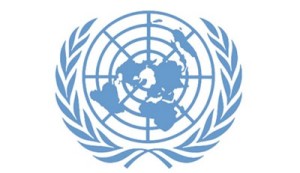 When should you involve humans in the care and support of vulnerable populations, like children, people with disabilities, women who have been victims of domestic violence, etc., or in high-risk situations, like working with wildlife or fighting fires?
When should you involve humans in the care and support of vulnerable populations, like children, people with disabilities, women who have been victims of domestic violence, etc., or in high-risk situations, like working with wildlife or fighting fires?
Most people would say humans are essential to all of those scenarios – that care and support cannot be provided in those situations without humans, that emergency response cannot be provided by humans, that addressing the needs of wildlife adversely affected by humans cannot be done without humans. And I would agree. I bet you would too. What’s the alternative – robots? Not yet, robots… not yet…
But what do humans need in order to be able to provide appropriate care and support in those high-responsibility, even high-risk, situations, and to stay safe themselves? Humans need:
- to be appropriately screened and vetted, with inappropriate humans turned away and appropriate humans brought into the program
- specific training for these situations – and, perhaps, ongoing training
- regular, appropriate supervision
- regular, quality support
You would agree with all of that, right?
Now change the word humans in the aforementioned text the word volunteers. Suddenly, the conversation changes.
Volunteers aren’t appropriate!
Volunteers could endanger the clients!
Volunteers will harm the wildlife!
What’s different? Just one thing: when we were talking about humans before, you were immediately thinking of paid staff. Now that I change the word to volunteers, we’re talking about unpaid staff, and many automatically assume that means untrained, unsupervised people who work whenever they might maybe find some time.
Volunteers mean just one thing: people who aren’t paid a wage, that aren’t given financial compensation for their service hours. That’s it! Volunteers do NOT have to mean untrained, unvetted people, just anyone off the street who says, “I have a good heart! I want to help!”
No one who has not been appropriately vetted, no one who lacks the necessary training, no one who cannot be appropriately supervised and no one who is not regularly supported should be doing any work with vulnerable populations or with wildlife, paid or not. A paycheck has nothing to do with a person’s appropriateness to undertake a role at a nonprofit, NGO, charity, etc.
So, with that said, when should a nonprofit, NGO, charity, school or other mission-based organization involve a paid person instead of an unpaid person? Susan Ellis of Energize says it best, in her book, From the Top Down: The Executive Role in Volunteer Program Success:
Offering a salary gives the agency a pre-determined number of work hours per week, the right to dictate the employee’s work schedule, a certain amount of control over the nature and priorities of the work to be done, and continuity. When you pay a salary, you can require that the person give your organization forty hours a week or whatever number is necessary. Because most people need to earn a living, people can rarely give one agency that much volunteer time per week… (pages 12 – 13).
And, to be fair, people DESERVE to earn a living. I’m looking at you, United Nations agencies that have six-month unpaid internships – volunteer gigs that only well-off young people can undertake…
Volunteers can do high-responsibility, even high-risk activities, and they can fill expert roles. In fact, they actually DO all of these things already, all over the USA and all over the world. What the vast majority volunteers usually cannot do is provide 40 hours a week of service, even 20 hours a week, to an organization, week-after-week – they can’t afford it! Many roles at a nonprofit, non-governmental organization or charity require a person to staff a role full-time, or even part-time, 20 hours a week, week after week – and that means, to keep that role staffed at all times, the agency must pay someone. Many roles at nonprofits, NGOs, charities, schools, etc., require someone to have a great deal of training and experience in order to do the role that needs to be done, and most people that have the training and experience necessary for such roles have such because it is related to their career, their paid work, and they got the certification or degree(s) necessary for such for their paid work.
I don’t believe in involving volunteers to save money – I believe an organization should create volunteering opportunities primarily because they believe a volunteer would be the best person for that particular role, just as an organization reserves certain roles specifically for paid staff, and you make those decisions based on a myriad of criteria. I also believe that one needs to tread carefully when asking an economically challenged community, one with a very high unemployment rate and people struggling to pay for the basic necessities of life, to donate their time to keep a nonprofit afloat.
So, how much time and responsibility may you ask of a volunteer? What’s reasonable?
That is a question that is frequently asked. And there are no easy answers. It can vary from organization to organization, from community to community.
There are communities that are well-served by entirely volunteer fire stations, with enough well-trained, constantly trained volunteers always on-call to respond to any fire or other emergency. But in those same communities there might be a cold-weather shelter for the homeless and the nonprofit running such is struggling to find over-night volunteers to manage the facility for 6-8 hours at a time. Why does one group have a waiting list of people that want to volunteer while another in the same community, with less requirements for training and less of a time commitment each month, struggle?
There can be all sorts of reasons why one organization can easily attract volunteers to high-intensity, high-responsibility, high-commitment roles, and another cannot:
- One role may look fun, exciting, interesting and even heroic, while another may look difficult, scary, even depressing.
- One role may look like it could help the volunteer in his or her career or university studies, while another may just look like a lot of work for no pay.
- One role may look like the challenges would be uplifting, while another may look like it would be disheartening.
- One role may seem like you get a lot of community recognition, that you are frequently thanked, while another may be rather thankless.
- One role may look like it would be fun, at least some of the time, while another may look daunting and soul-draining.
- One organization may be targeting a particular social or economic group that has the financial safety net and family structure (child care) to be able to afford to volunteer, while another organization may be targeting a group that can’t afford to do unpaid work (they are already caregivers, they have child care needs, etc.).
If you are having trouble attracting volunteers, you need to look at a lot of things:
- Is it easy to know just from looking at your web site what volunteers do, the different roles, the time commitment, the training requirements, and how to sign up?
- When someone calls or emails about volunteering, or submits an application, do they get an immediate reply regarding next steps? In fact, do they get info at all, or does someone take their name and say someone will get back to them and then, most of the time, no one ever does?
- Are your next steps for volunteering with your organization something that the volunteer can get started on in a few days? In several weeks? In a few months? The further away the next step, the more likely the volunteer candidate won’t follow through.
- Do you need to alter the volunteer role so that a volunteer would get more out of it, in terms of training, career-development, university class credit, or personal fulfillment? Is there anything you can do to make the role more fun?
- Can the people you are trying to recruit as volunteers afford to volunteer – to work for free? Do they have child care responsibilities that are preventing them from helping?
- Could you make the time commitment less for volunteers? Could you try to recruit more volunteers for shorter shifts, for instance, instead of fewer volunteers for longer shifts?
- Does the task seem especially intimidating or daunting? Could you make it less so, by reducing the time commitment the volunteer would have to make, or by guaranteeing that there is a seasoned volunteer or employee always with the new volunteer? Or by taking away the tasks in the role that are the most intimidating and giving them to paid staff? Or by better assuring candidates that they will be fully trained before they are put into potentially challenging situations?
- Are you asking too much from volunteers in terms of a time commitment, training and the responsibilities they will undertake as unpaid staff? Do you need to convert such roles into paid positions, in order to better attract the people that can make the time and emotional commitment to the role?
This is yet another blog that was inspired by my own real-life moments – two, in fact: one from a nonprofit that felt I was being inappropriate for disagreeing with them that their work is too high-risk for volunteers, and another from a situation that is happening in my own community regarding volunteer recruitment. It was supposed to be two blogs – but they seem so closely related, I put them together.
Also see:
- Magical paychecks (my 2012 blog on the same subject)
- Letting Fear Prevent Volunteer Involvement is Too Risky
- When to NOT pay interns
- Resources re: labor laws and volunteering
- Why Should the Poor Volunteer? It’s Time To Re-Think the Answer
- Volunteering, by itself, isn’t enough to save the world
- Creating a Speak-up Culture in the Workplace
- Why don’t they tell? Would they at your org?
- Your organization is NOT immune to sexual harassment
- Safety in virtual volunteering
- Keeping volunteers safe – & keeping everyone safe with volunteers
- Safety in virtual volunteering
- Safety of volunteers contributes to a shelter closing
- REQUIRED Volunteer Information on Your Web Site
- Your flow chart for volunteers
- For volunteers: how to complain
- Screening applicants by reviewing their online activities
- How Our Minds Mislead Us
- volunteer managers: you are NOT psychic!
- Fearing your own colleagues in the field
- Survey for Returned Peace Corps Volunteers Re: Safety
- Evaluation Re: Peace Corps’ Sexual Assault Risk Reduction & Response Program
- My consulting services





